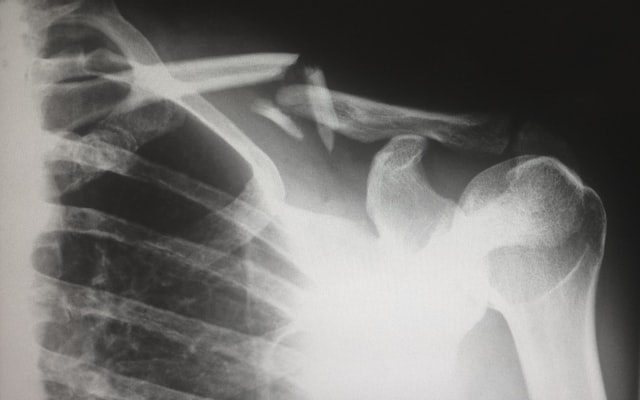
Shoulder injuries are incredibly common, and unfortunately can have far reaching impacts. Once simple tasks now take enormous amounts of effort or are unable to be done independently at all. Shoulder injuries at work are relatively common and can be a result of trips, slips, falls or overuse injuries. It is important to remember that these injuries can happen to anyone and that if you sustain a shoulder injury at or as a result of your work, you have options. Understanding if you are eligible for shoulder injury compensation is important. In some cases you can get WorkCover payouts for shoulder injuries and in other cases it is more complicated.
Common Workplace Shoulder Injuries
Before looking into possible compensation, it is important to understand what kind of shoulder injury you have sustained and how they can be caused. Common shoulder injuries you could sustain at work include:
- Fractures: depending on where they occur you could experience compound fractures or even dislodged bone fragments. The severity of fractures and treatment methods can vary, in some cases requiring only pain medication and immobilisation and in others surgery.
- Dislocations: a shoulder dislocation is where the upper arm pops out of the shoulder socket. Treatments may include physical therapy, surgery and pain management, however it depends on the severity of the dislocation. Complications can include muscle, tendon or ligament tearing or damage to the nerves or blood vessels. Experiencing one dislocation can also make a person more prone to future dislocations.
- Rotator cuff tears: rotator cuff tears are a soft tissue injury and affect the group of tendons and muscles that stabilise your shoulder. These tears can cause weakness in the arm and difficulty raising it. Often treatments include physical therapy and pain management, but in some cases may require surgery.
- Impingement: commonly caused by repeatedly lifting arms about your head, impingement is the inflammation of the tendons of the rotator cuff muscles, leading to shoulder weakness and pain raising the arm. Treatment usually includes physical therapy and pain management.
Common causes of shoulder injuries at work can include:
- Repetitive movements
- Slips and falls
- Pushing and lifting
- Spending time in awkward positions
- The use of tools and heavy equipment
Can I Claim Compensation If I Have Injured My Shoulder?
If your injury occurred at work or as a result of your job you may be entitled to compensation. It is important to note that in certain States you may have work insurance that will cover you for your injury. This is also a case by case basis, and before signing any documentation it is important to seek legal advice to ensure you are getting the correct information. Making workplace injury claims can be complicated and daunting, but the GC Law team can make it pain free.
Before you can make a claim, it is important you get an accurate assessment of your injury by a medical professional. In the first instance of sustaining an injury, you should consult with a GP. From there you will likely get a scan or specialist assessment of the injury to provide you with all the necessary documentation you will need to make a claim. It is important you do not wait too long before commencing the medical appraisal process of your injury because time limits surrounding your ability to claim compensation may vary between States. Contact the GC Law team to learn more about the particulars around your circumstances.

What Can I Claim For If I Have a Shoulder Injury?
If you have experienced a workplace shoulder injury and are eligible for a claim, some of the costs you may be able to claim for include:
- Medical costs: from consultations to equipment or medication.
- Surgery: shoulder injuries will often require surgery and the recovery time period will depend on the extent and nature of the injury.
- Rehab/physical therapy: whether it’s post surgery recovery or the injury requires physical therapy to heal, this may be included in your claim.
- Care and assistance: depending on how severe your injury is, you may experience a loss of independence and require assistance with tasks.
- Loss of wage/ future earnings: if you are unable to resume work while recovering or you are unable to return to the same job you may be able to claim for lost wages during your recovery and lost future wages as a result of the lasting injury impacts.
- Superannuation: if you are not working it stands to reason you will not be able to contribute to your super, so this may also be something you could claim for.
- General damages for pain and suffering.
As always, what you can claim for is dependent on your individual circumstances and your ability to prove the lasting impact they have had on your life.
How Much Can I Receive For Shoulder Injury Compensation?
Shoulder injury compensation payouts in Australia vary by case. As a general rule, WorkCover payouts for shoulder injuries should cover the cost of medical services or treatment you require if it happened at or as a result of your work, but each case is different. Shoulder injury compensation in Australia varies depending on a range of factors including how the injury occurred and how severe it is. For example, compensation for a shoulder injury requiring surgery will be different to a shoulder injury that required a few weeks of physical therapy.
In cases where an injury has occurred, the amount of compensation you are able to receive will be based on a range of factors including loss of earnings, its impact on your quality of life and so on. To better understand what you can claim for and what you could be compensated for, it is best to get in touch with injury lawyers Gold Coast who understand the particulars around shoulder injury compensation.
Shoulder Injury Compensation at GC Law
Sustaining an injury at work can be a difficult experience, but shoulder injuries in particular can be complicated as their impacts can be long-lasting. Before going direct to your employer for your shoulder injury compensation, you should get in touch with the GC Law team for a free, no obligation case review to ensure you fully understand the situation and what you may be entitled to.